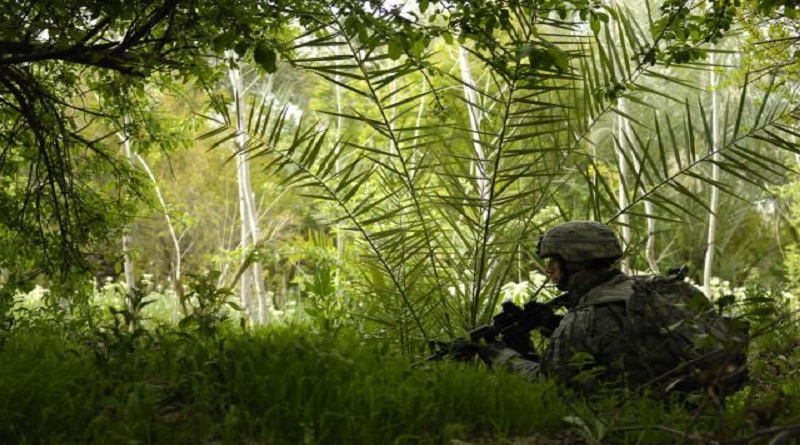Soldiers meet a new enemy in Jharkhand’s battlefields
RANCHI: The policemen of Jharkhand fighting Maoists across the hilly terrains and dense forests have encountered a new challenge – the unparalleled growth of vegetation due to bumper monsoon rains. The vegetation growth has reduced visibility, slightly altered the structure of the topography and made life difficult for the soldiers chasing the rebels in the battlefield.
The changed scenario often results into loss of opportunities for the police. Two big opportunities were lost last week in Latehar and Khunti even after the cops engaged the rebels in an encounter. “The Maoists disappeared after firing few rounds at us. The vegetation was so huge that we could not make out when they left the ground,” said ASP (operations) P R Mishra, who led the operation in Khunti district last week.
In the battlefield, soldiers fan into the forests according to a devised strategy and fire from the strategic positions they take. “The bullets fired by our soldiers (who are not visible due to thick bushes) are mistaken as fires from the Maoists. It’s a common problem in jungle warfare, but becomes serious due to heavy vegetation,” said a CRPF officer.
The battlefield in Red Corridor is different from the battlefield in international wars or cross-border armed conflicts. “You know that the enemy would come from one specific direction. In Maoist zone, the enemy is invisible even though he is very close to you. We do not always know from which direction he would attack,” said a police officer.
Source: http://timesofindia.indiatimes.com/city/ranchi/Soldiers-meet-a-new-enemy-in-Jharkhands-battlefields/articleshow/54253515.cms

